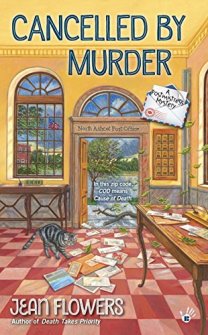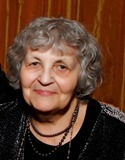 Early risers in North Ashcot, Massachusetts spot me while I’m hoisting the American flag up the pole in front of my post office. My POSTMISTRESS CASSIE MILLER name tag is unnecessary for exchanging greetings as the stars and stripes ascend to the sky over our small town.
Early risers in North Ashcot, Massachusetts spot me while I’m hoisting the American flag up the pole in front of my post office. My POSTMISTRESS CASSIE MILLER name tag is unnecessary for exchanging greetings as the stars and stripes ascend to the sky over our small town.
“Morning Cassie,” comes from slow-jogging senior citizens. A toot of a horn from a pickup and an SUV driving by. High energy waves from kids on the way to the grade school down the street. I know them all, and they know me.
But before I show up in my dress red-white-and-blues, my day always starts with a quote.
This morning, I peered at the page-a-day calendar and read this, from nineteenth century writer Charles Caleb Colton:
If you would be known, and not know, vegetate in a village; if you would know, and not be known, live in a city.
I wished I’d written it myself. I’ve certainly thought about it a lot, especially today, on the second anniversary of my return to my home town. I left North Ashcot for college in Boston more than fifteen years ago, and stayed for a career in the Boston postal service.
Postal work itself isn’t that different, whether you’re in a big central office or a small one-woman operation. So many services are online now, from buying stamps and scheduling a pickup, to reserving a post office box. But the postal worker’s brick and mortar job everywhere is still face-to-face customer service and the promise to handle business and personal dispatches with the care she would give her own correspondence.
What’s different for me is where I honor my commitment these days.
Growing up in North Ashcot, it was impossible to skip school—or make a mistake—without everyone and his parents’ knowing it within a few hours. There wasn’t a lot to do—nor much to “know”—unless you count bake-offs, drag racing on Main Street, and Founder’s Day parades. When my parents died in a car crash during my junior year in high school, it seemed necessary for me to leave also, to go where no one knew me or brought casseroles to cheer me up.
The plan worked. If you would know, and not be known, live in a city.
My days in Boston were filled with things to know—after work in the bustling main post office, there was more to do than could fit in one day. If we were in a sporting mood, my friends and I could cheer the Red Sox; if we needed a cultural fix, we could choose among scores of museums and concert halls; if we wanted music to listen or dance to, there was a club on every corner.
North Ashcot has a small park behind city hall; Boston has a 281-acre world-class arboretum. North Ashcot has a monument to Revolutionary War hero, General Henry Knox; Boston has a two-and-a-half-mile-long Freedom Trail with 16 locations significant to early US history.
In Boston, I could walk down the street and never meet someone only one degree of separation from my family or best friend. No one stopped me to ask, “How’s your Aunt Tess’s bad knee?” or “Did you find those earrings you were looking for?”
So, why did I come back to this village? I asked myself this morning. Back to where I was known, but there was nothing much to know.
Could I have predicted that I’d find satisfaction in learning to quilt from the chief of police (with 3 officers under her, as opposed to Boston’s nearly 3000-person force)? More important, could I have predicted that I would become engaged in helping said chief of police in her investigations?
This week it was about my friend Daisy who died during one of our famous summer hurricanes. It was a falling tree branch that killed her. Or was it? I couldn’t seem to keep my nose out of the chief’s business. If I were still in Boston, I told myself, I wouldn’t dare interfere in police business. But then, I probably wouldn’t have known the victim, and she wouldn’t have known me.
So, I asked myself this morning. Village or City?
For now, it’s Village.
[Note from North Ashcot Chief of Police Sunni Smargon: I’ve given up trying to dissuade Postmistress Cassie Miller from interfering with my job. I’m thinking of giving her a badge instead. ]
[Note from Jean Flowers: For the full story of Daisy Harmon’s death, read Cancelled by Death, recently released on September 6, 2016!]
Cancelled by Death is the second book in the Postmistress mystery series, published by Penguin Random House, September 2016.
Cassie Miller returned to her sleepy hometown in the Berkshires to start over as the new postmistress. But she soon finds that dead letters are nothing compared to murder victims. . .
With a massive storm about to hit North Ashcot, Massachusetts, threatening floods and widespread wind damage, Cassie is forced to close up the post office along with the rest of the local business owners and residents, who are battening down the hatches and bracing themselves for the worst.
Although the storm proves not to be as bad as predicted, fabric shop owner Daisy Harmon is found dead, seemingly killed by a fallen branch. But the police quickly determine that her death had nothing to do with foul weather and everything to do with foul play. After Daisy’s widowed husband approaches her to help solve his wife’s murder, Cassie vows to find the killer before another innocent victim is taken by storm.
# # # # # # # # # # #
About the author
Jean Flowers is the pen name of Camille Minichino, the author of short stories, articles, and more than twenty  mystery novels. They include the Postmistress series, the Professor Sophie Knowles Mysteries (as Ada Madison), and the Miniature series (as Margaret Grace). She’s past president of Northern California MWA, Northern California Sisters in Crime, and the Mt. Diablo California Writers Club. She teaches science at Golden Gate University, and writing at Bay Area schools. Connect with Camille at www.minichino.com.
mystery novels. They include the Postmistress series, the Professor Sophie Knowles Mysteries (as Ada Madison), and the Miniature series (as Margaret Grace). She’s past president of Northern California MWA, Northern California Sisters in Crime, and the Mt. Diablo California Writers Club. She teaches science at Golden Gate University, and writing at Bay Area schools. Connect with Camille at www.minichino.com.
All comments are welcomed.
Giveaway: Leave a comment below for your chance to win a print copy of Cancelled by Death. US entries only, please. The giveaway will end September 17, 2016 at 12 AM (midnight) EST. Good luck everyone!

This is a new series for me! The book’s cover is really attractive and got my attention! lindaherold999@gmail.com
test
Another test
I enjoyed the first one. Looking forword to this one Thank you
This sounds like a great read!
kpbarnett1941[at]aol.com
New author for me and I’m ready for a new series! Thanks for a chance to win.
This series is new to me, but sounds good. Beautiful cover. Hope I win!
I enjoy books by this author so am looking forward to this series.
I was immediately intrigued with this book just from the awesome cover! This is a new author to me and sounds like a really exciting book. Thanks so much dear Dru and Jean Flowers for the chance to win!!! God bless you both!!!!
This sounds like a fun series – thank you for the chance to win
Camille is an author who is delightful to read under any name. I hope I can win this one.
This is a new series for me and author for me! Thank you for the chance to win a print copy of Cancelled by Death.
Great giveaway and wonderful series. Thanks.
I never heard of the series. Sounds like a series I would enjoy. Thanks for having the giveaway.
What a delightful premise. I look forward to the book.
I so enjoyed the first book in the series and love the art work on both books. Looking forward to a delightful cozy read.
Sounds like a good read.
I grew up in a small town. Made my way out in the world in cities. Can’t wait to return.
This is a new series and I just picked up the first book in the series and haven’t had a chance to read it yet. Looking forward to reading “Cancelled to Death”.
I just finished the first book in this series and would love to read this second title as well. Thank you for the chance
New series for me – thanks for the introduction.
I’ve often thought about moving from the big city back to the small town where I grew up! Not sure I could handle the slower pace.
This does look like a great read. Love the cover. Love the post. I have never read this author, just recently learned about her. And just now, her other pens. Will the Chief of Police actually give her a badge? That I would like to see. So hoping I will get started with Jean’s books sooner. Rather than later. I moved from a big bustling city to a quieter and (I thought) slower life style. I am as busy as ever. But a more relaxing kind of busy. And a bit less hectic.
Interesting title! Thank you for the chance to win a copy.
wfnren at aol dot com
Loved the first book & all the other series by this author. Thanks for the chance to win.
You have done it again. Introduce me to an author and books I need to read and already have added to my TBR list. Thanks.
I’ve been anxious to catch up again with Cassie and see how things are going! Can’t wait to get this next in a great series! Thanks!
This series sounds like there is lot of New England in them. I’m in the Mid-West now and I do miss New England.
New series to me, but it sounds terrific! Thanks for the chance to win a copy, going to look up the whole series.
I’ve never heard of the postmistress series but it intrigues me because one of my best friends is a postmistress! I will definitely look for the first book in the series and hope that I might be the one who wins the second one. I’m going to text my friend as soon as I finish this comment! Thanks so much!
I’d love to win a copy. It sounds great!
Another new series to me – thank you. Really enjoy cozies that include fabric and quilting.
If this hasn’t ended I would love to enter.
Marilyn ewatvess@yahoo.com